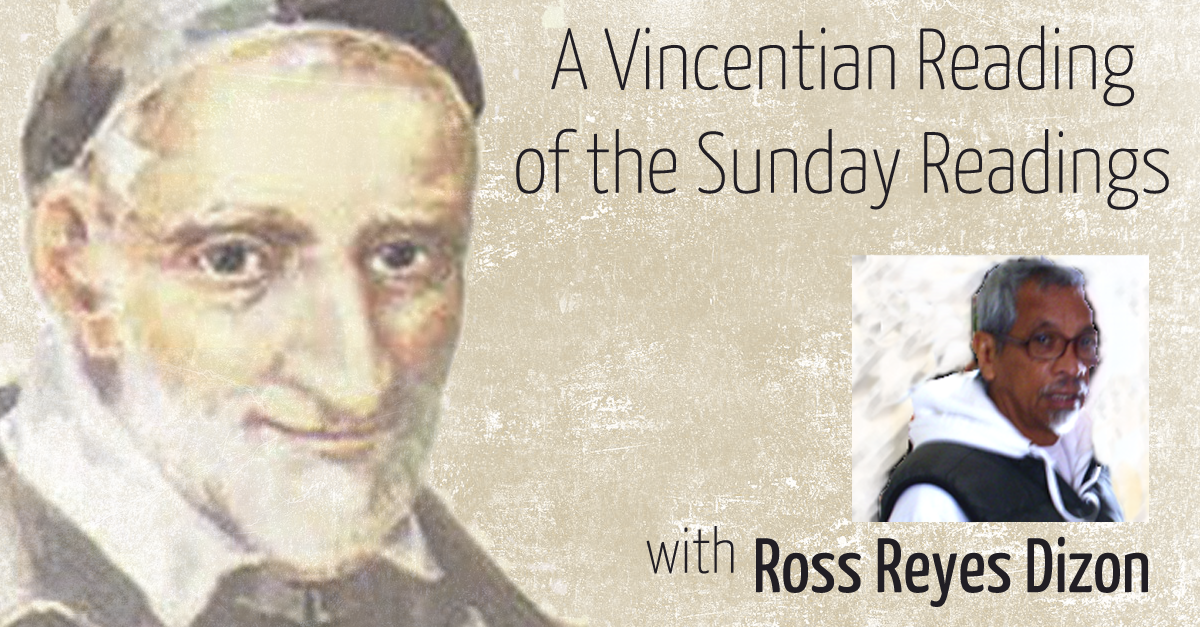As he gives welcome to the marginalized, Jesus reflects the invisible God. This God listens to the poor, executing justice for the orphan and the widow, and befriending the alien.
Jesus is unlike those who walk around with blinders. As he passes by, he sees a blind man begging by the roadside. He goes to welcome the blind man right after seeing him. Then, like the Creator or the potter who works with clay, he sets in motion the healing of the blind man.
In fact, Jesus looks rather than see, just as he listens instead of simply hearing. Thus does the one who is the light of the world show a different way. He likewise hinders the night from overcoming the day.
The disciples see the blind man, too. But they see him out of curiosity: “Rabbi, who sinned, this man or his parents …?”
That is to say, the disciples, rather than welcome the blind man, reduce him to a mere symbol of sin. They base themselves, of course, on the popular belief that every human affliction is divine punishment for some sin someone committed.
The Pharisees think the same way, though they consider themselves wiser than the rest of the people. They display such thinking when they ridicule him. They tell him, “You were born totally in sin, and are you trying to teach us?”
Those thinking that way and the self-righteous as well cannot welcome the beggar. Do they not tend to show that they are intimidating and firm with the weak, yet kind and gentle with the strong?
But those who demand that facts yield to their presumptions are much less able to welcome a nobody. Their very selves are the only truth they know. Settled in their presumptions, they do not welcome anyone else.
And are we Christians and Vincentians, besides, truly able to welcome others?
It is worth our while to ask the preceding question and more. Do we not also make up “alternative facts?” Are we on the side of the one who opens the eyes of the blind? He wants us to be alive and whole, so that we may be the glory of God.
In addition, do we look as does St. Vincent de Paul? He shows us that we must not judge the poor by their appearance. Looking at them by the light of faith, we will discover that they are the ones who represent Jesus, who willed to be poor (SV.EN XI:26). It should not matter to us that they are crude and vulgar, without the expression or the mind of rational persons.
Grant us, Lord, to welcome the marginalized and thus live as children of light. Welcome us some day to the Sacred Banquet of the Kingdom.
26 March 2017
4th Sunday of Lent (A)
1 Sam 16, 1b. 6-7. 10-13a; Eph 5, 8-14; Jn 9, 1-41








0 Comments